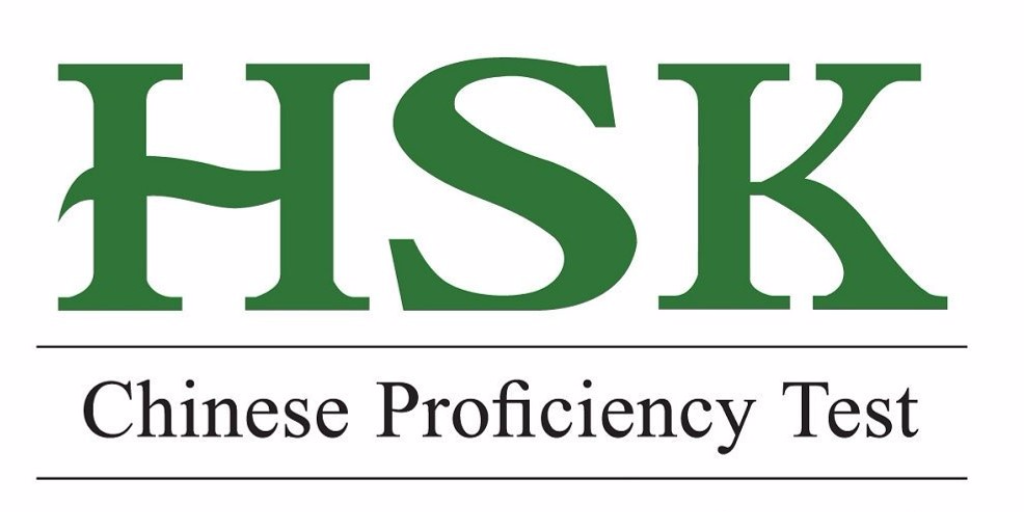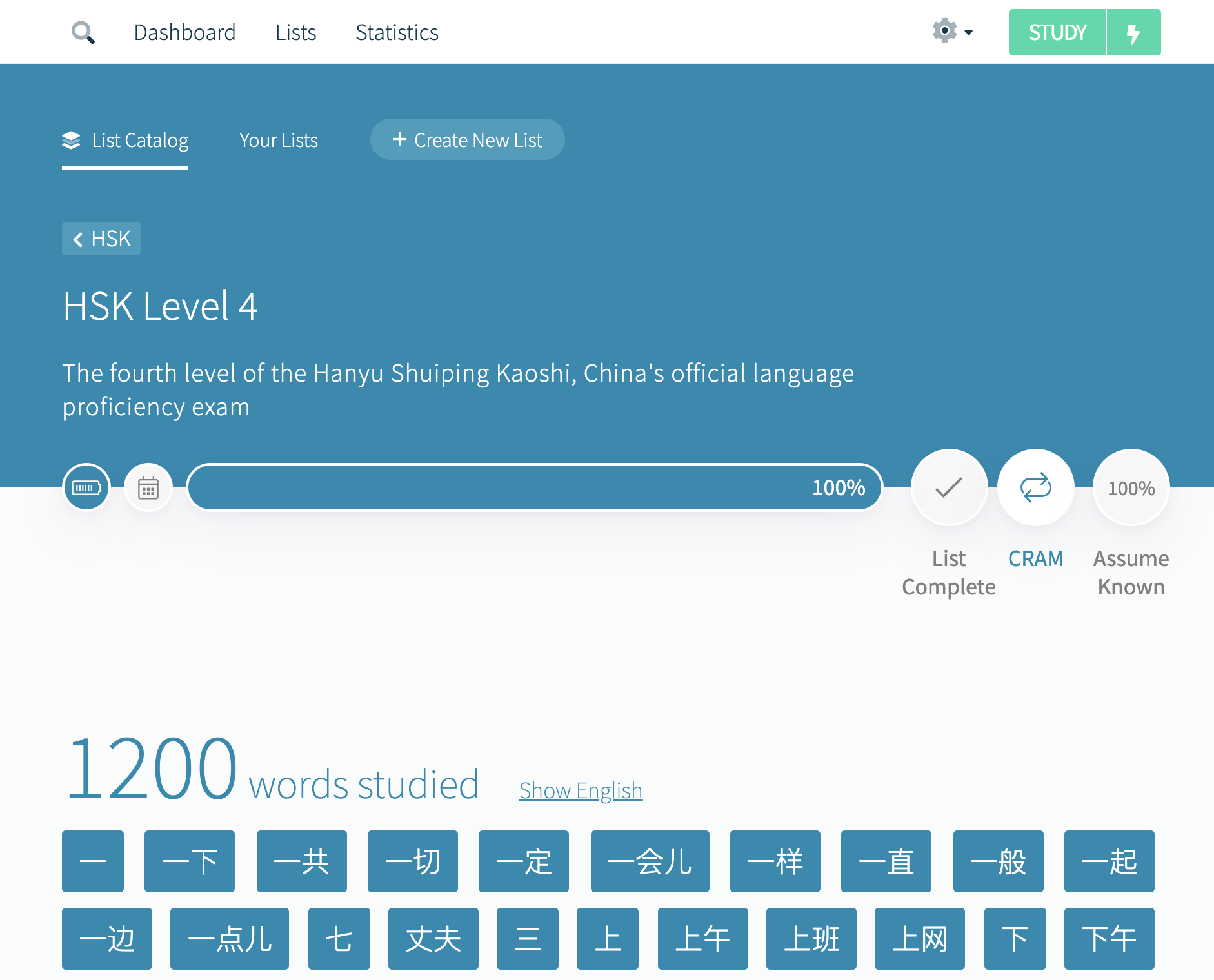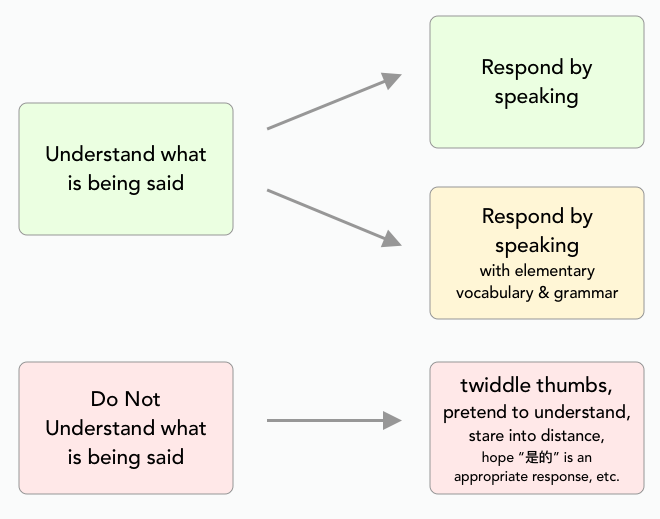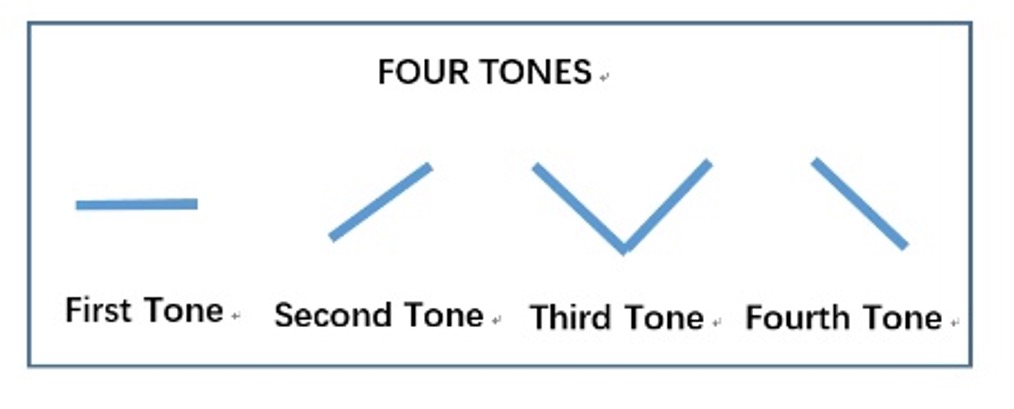This HSK Study Guide by Hack Chinese will help you efficiently practice for the HSK exam.
It feels like you began learning Chinese ages ago. You’ve finally registered for an HSK exam, the official Chinese proficiency test. You’re pretty sure you know all the required HSK vocabulary, and you’ve progressed through enough lessons in your favorite app (or chapters in a textbook, or hours with a teacher) to feel like you’re ready.
And you’re wondering: what can you do now to maximize your chance of passing?
Stop wondering how to pass the HSK test. Just follow these steps, in this order, and you’ll have the highest chance of passing your exam.
- Familiarize yourself with the HSK exam format
- Recognize the required vocabulary
- Increase your reading speed
- Listen, listen, listen
- Take HSK practice tests
Fortunately, steps 1-4 are not just good for the exam, but exactly what you need to do to progress with your Chinese anyway. So let’s get started!
HSK Study Guide: 5 Steps to Follow
#1 Familiarize yourself with the HSK exam format
There should be no surprises on HSK test day. You should walk into the test center knowing exactly what to expect: how long the exam will be, what type of questions there are, how you’ll approach answering them, what to do if you are stuck, etc.
Note that the HSK structure and requirements are changing in 2022. We’ve created this interactive guide to break down the requirements for the new HSK.
#2 Recognize the required vocabulary for the HSK test
Hanban (the administrators of the HSK exam) publish lists of vocabulary you must know for each level of the HSK exam.
When studying for the first few HSK levels, you might be able to get away with studying the HSK vocabulary list with physical HSK flashcards. But once you graduate to advanced levels (HSK 3 and above), you’ll almost certainly want to go digital. After all, there are 1,200 HSK 4 vocabulary words, and thousands more in HSK 5 and 6.
With Hack Chinese, learning Chinese vocabulary will be the easiest part of your preparation, but also the most essential, as it will have the largest impact on your overall score.
Consider:
- If you know the vocabulary, all sections of the exam will seem easier.
- If you do not know the vocabulary, all sections of the exam will seem more difficult.
- Every additional word you know helps. For example, with four possible answer choices, knowing just one word in just one of those choices might enable you to identify it as an incorrect answer, increasing your chance of getting the correct answer (if you’re guessing) from 25% to 33%.
- Many sentences can be understood if you only know the vocabulary, even if you’ve never studied the grammar.
If you’ve been using Hack Chinese to study for the HSK test, you’ll see precisely when you know 100% of the required vocabulary for any given HSK level.
If you haven’t been using Hack Chinese, you can start now and take advantage of the “Assume Knowledge” function. This will let you focus on learning words you haven’t yet learned, and still return to double-check all the words you assume you know.
#3 Increase your reading speed (by reading)
If you’ve familiarized yourself with the exam format, you know the exam involves a lot of reading.
It is obvious that your reading speed affects how quickly you can read the dialogues of the exam. What’s less obvious is that your reading speed also affects how quickly you can read:
- Exam instructions
- Questions
- Answers
The faster you are able to read, the more time you’ll have to actually apply the Chinese you know.
So how do you increase your reading speed? It’s probably not a surprise: by reading.
Here are some tips:
Read mostly content that is easy for you.
You don’t build up speed when practicing things that are difficult. You build up speed practicing things you’ve practiced many times before.
On exam day, it’s okay to slow down when you come across words you are less familiar with, but you should be able to quickly read words you’re familiar with. A side benefit (but an important one) is that your confidence will increase as your reading speed picks up.
What easy content can you read?
- Previously finished textbook chapters
- Previously finished textbook volumes
- Textbook volumes you’ve never read but are easy for you
- Previously finished lessons in your learning app
- Graded readers that are at or below your level
Read some content that is challenging for you.
There will be words on the exam that you don’t know, and don’t appear on the required learning list. The purpose of reading challenging material before your exam isn’t to learn new words (although you can), but rather to practice not becoming flustered.
You will come across vocabulary that you don’t know. This is OK. Use context to make an educated guess, but move on if you’re lost. Get comfortable not knowing every word, phrase, and grammar point. That will happen on the test, and in real life. Learning to understand the gist with incomplete information is a skill you can practice.
#4 Increase your listening comprehension
Unlike exam sections that require reading ability (where you can slow down or re-read sections as often as you need), you aren’t in control of how many chances you get to listen to the exam’s audio sections.
On all 6 levels of the HSK exam, listening comprehension accounts for 33% of your total score. You might be wondering why listening has so much weight on the exam.
Want others to think your Chinese is great? Get better at listening comprehension.
Some people don’t care about being able to read or write in Chinese — they just want to be able to hold their own in conversations.
For these people it is intuitive, but incorrect, to conclude that speaking is the most important skill to practice.
The most important skill to practice is listening.
If you don’t understand what is spoken, you can’t respond.
We’ve made this advanced flowchart that will hopefully make your options clear:
Conclusion: Listening ability is the gatekeeper to actually using your Chinese.
Whether you are learning Chinese just so you can converse, or if you care about reading and writing too, you’ll certainly need a high degree of listening proficiency if you want to pass your HSK exam.
So, how do you practice listening for HSK test?
- Listen to your textbook dialogues until you’ve nearly memorized them.
In earlier levels (HSK 1-2), textbook dialogues are very short, so this won’t be super fun. But the exam questions are very short too, so this practice will be practical as well as beneficial. - Listen to audio from practice exams.
- Listen to Chinese language Podcasts.
If you’re a beginner (HSK 1-4), focus on podcasts designed specifically for learners. Those designed specifically for folks planning to take the HSK exams are even more beneficial. - Watch Chinese television and movies.
For intermediate students (HSK 4-5), Chinese television programs are invaluable. Find a television series you understand and you’ll have 10-100 hours of great listening practice. When you’re feeling ambitious and energized, you can pause and add words to your study plan if you encounter anything you don’t know. The rest of the time, just relax and get the gist, and trust that you’re increasing your listening skills through massive exposure.
#5 Take HSK practice tests
Practice HSK tests are wonderful because they accomplish several important things at once.
In addition to the obvious (practice with the type of HSK test questions you’re going to encounter), taking HSK practice tests can also help you:
- Solidify your understanding of the format of the HSK test, which can increase your confidence on test day. When you know what to expect, you can spend less time reading the instructions just to determine what section you’re on and what you’re required to do.
- Help you assess your reading speed
Running out of time before you can finish? Focus on increasing your reading speed before test day. - Identify your weakest areas
If your listening comprehension score on your practice exam is the lowest, well, you know what to do next.
There are many HSK practice tests to take, so while this might seem obvious, we suggest following this cycle until you are consistently passing your HSK practice tests:
An HSK passing score is 70%, but there is no harm in continuing the above pattern up until exam day even if your scores exceed that. Many students have reported that their practice exams were easier than the real thing. And exam-day anxiety and stress are real: it’s easier to get flustered and zone out. If you have the time, keep practicing up until exam day.
HSK Practice Exams: Physical or Digital?
There are two ways to practice: with physical versions of past papers, or with apps.
While both methods are OK, we recommend you take at least one practice exam that is the same format of the one you’ll be taking on test day. So, if you’re taking a hand-written test, take the physical practice exam at least once. If you’re taking the “online” exam, take a digital exam at least once.
Tip: Sign up for the “Internet” exam
Testing centers in China let you take the “Internet” version of the exam at their testing centers. We highly recommend this (as opposed to the paper examinations), because you are able to type Pinyin which is converted to characters.
If you take the physical exam, you are expected to hand-write your answers, which means you will be tested on your ability to hand-write Chinese characters. Not only is this an entirely new skill to learn and practice, but it takes extra time on the exam, as well.
You can download sample test papers here.
If you’ve been learning Mandarin online and would like to take a digital practice exam instead, try HSK Online.







